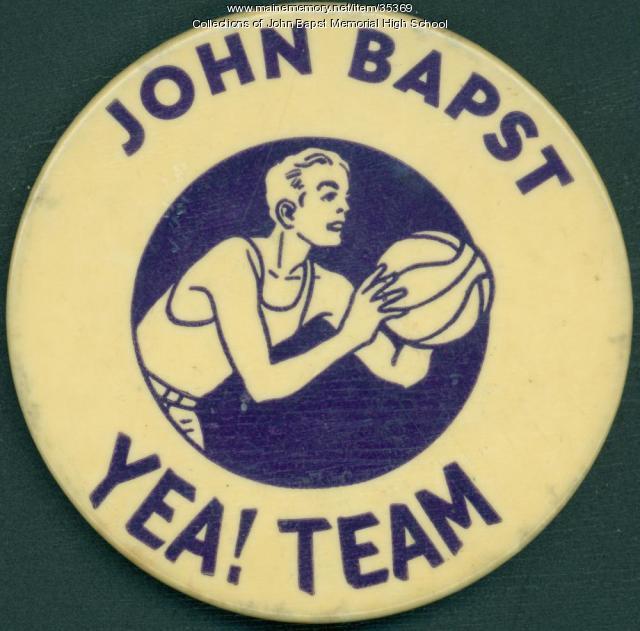Keywords: Classics Class
- Historical Items (8)
- Tax Records (0)
- Architecture & Landscape (0)
- Online Exhibits (16)
- Site Pages (5)
- My Maine Stories (2)
- Lesson Plans (0)
Online Exhibits
Your results include these online exhibits. You also can view all of the site's exhibits, view a timeline of selected events in Maine History, and learn how to create your own exhibit. See featured exhibits or create your own exhibit
Exhibit
World Alpine Ski Racing in Maine
Sugarloaf -- a small ski area by European standards -- entered ski racing history in 1971 by hosting an event that was part of the World Cup Alpine Ski Championships. The "Tall Timber Classic," as the event was known, had a decidedly Maine flavor.
Exhibit
The mainspring of fashion is the process whereby members of one class imitate the styles of another, who in turn are driven to ever new expedients of fashionable change.
Exhibit
Graduations -- and schools -- in the 19th through the first decade of the 20th century often were small affairs and sometimes featured student presentations that demonstrated what they had learned. They were not necessarily held in May or June, what later became the standard "end of the school year."
Exhibit
Longfellow: The Man Who Invented America
Henry Wadsworth Longfellow was a man and a poet of New England conscience. He was influenced by his ancestry and his Portland boyhood home and experience.
Exhibit
John Bapst High School was dedicated in September 1928 to meet the expanding needs of Roman Catholic education in the Bangor area. The co-educational school operated until 1980, when the diocese closed it due to decreasing enrollment. Since then, it has been a private school known as John Bapst Memorial High School.
Exhibit
Public education has been a part of Maine since Euro-American settlement began to stabilize in the early eighteenth century. But not until the end of the nineteenth century was public education really compulsory in Maine.
Exhibit
Westbrook Seminary: Educating Women
Westbrook Seminary, built on Stevens Plain in 1831, was founded to educate young men and young women. Seminaries traditionally were a form of advanced secondary education. Westbrook Seminary served an important function in admitting women students, for whom education was less available in the early and mid nineteenth century.
Exhibit
A Snapshot of Portland, 1924: The Taxman Cometh
In 1924, with Portland was on the verge of profound changes, the Tax Assessors Office undertook a project to document every building in the city -- with photographs and detailed information that provide a unique view into Portland's architecture, neighborhoods, industries, and businesses.
Exhibit
Young men and women in the 19th century often went away from home -- sometimes for a few months, sometimes for longer periods -- to attend academies, seminaries, or schools run by individuals. While there, they wrote letters home, reporting on boarding arrangements and coursework undertaken, and inquired about the family at home.
Exhibit
Fallen Heroes: Those Who Gave Their Lives: World War II
At least twenty-three Jewish men from Maine died in the military during World War II. Photographs and other memorabilia are available for fewer than half of them. Read more about them.
Exhibit
Port of Portland's Custom House and Collectors of Customs
The collector of Portland was the key to federal patronage in Maine, though other ports and towns had collectors. Through the 19th century, the revenue was the major source of Federal Government income. As in Colonial times, the person appointed to head the custom House in Casco Bay was almost always a leading community figure, or a well-connected political personage.
Exhibit
Poland Spring: Summering in Fashion
During the Gilded Age at the end of the nineteenth century, Americans sought to leave increasing urban, industrialized lives for the health and relaxation of the country. The Poland Spring resort, which offered a beautiful setting, healing waters, and many amenities, was one popular destination.
Exhibit
Promoting Rockland Through a Stereopticon, 1875
Frank Crockett and photographer J.P. Armbrust took stereo views of Rockland's downtown, industry, and notable homes in the 1870s as a way to promote tourism to the town.
Exhibit
A City Awakes: Arts and Artisans of Early 19th Century Portland
Portland's growth from 1786 to 1860 spawned a unique social and cultural environment and fostered artistic opportunity and creative expression in a broad range of the arts, which flowered with the increasing wealth and opportunity in the city.
Exhibit
Bookplates Honor Annie Louise Cary
A summer resident of Wayne collected more than 3,000 bookplates to honor Maine native and noted opera singer Annie Louise Cary and to support the Cary Memorial Library.
Exhibit
Drawing Together: Art of the Longfellows
Henry Wadsworth Longfellow is best know as a poet, but he also was accomplished in drawing and music. He shared his love of drawing with most of his siblings. They all shared the frequent activity of drawing and painting with their children. The extended family included many professional as well as amateur artists, and several architects.
















